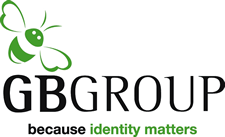Martin Pashley, head of retail and leisure for UK-based GB Group, which helps companies recognise and verify all elements of an individual's identity, assesses the difficult relationship between the gaming industry and consumers

Red faces are no doubt the order of the day at PA Consulting Group, after losing sensitive personal data on 84,000 criminals in England and Wales in just one month. Yet the consultancy is in good company.
From the NHS to the MOD, HSBC to HMRC, data loss stories are dominant on the media agenda. With the spectre of identity fraud continuing to unease the public, the gaming industry has unwittingly found itself on the frontline of the battle for brand trust.
GB Group commissioned YouGov research earlier this year, which found that only four per cent of the public trust casinos and gaming sites to protect their identities - bottom of the pile along with financial services. Despite being one of the most heavily regulated of all the UK’s industries, online gaming continues to be saddled with a somewhat nefarious image.
It is therefore critical if mainstream custom is to be attracted and retained, that industry names take steps to fortify their brands. Many of the ‘Power 50’ have opted for visible increases in marketing spend, yet this is arguably futile in creating a broader market if sites are not seen to take a robust and proactive approach to securing customers’ personal identity.
The application of identity verification processes, as required by law, ironically positions gambling sites at the forefront of responsible online trading. Few major online retailers apply verification to age restricted purchases in the way that gaming sites run age checks on their user-base.
As a result, 2008 has seen a spate of high profile embarrassments, with public reaction reminiscent of the aftermath of the 2004 Gamcare research that sparked Tessa Jowells reform of UK online gambling regulations. The subsequent obligatory adoption of thorough identity verification aided the remote gaming industry in stamping out the escalating incidence of underage gambling, online fraud and patronage by problem gamblers. The processes are further used by the sector regulatory bodies themselves in security checks and auditing procedures.
Online retailers would be wise to follow the lead of using identity verification to avoid their hands being forced by negative attention in the same vein.
For the customer, a robust verification system at the point of registration is a clear message in itself on a brand’s commitment to customer security. It is unnecessary and often inappropriate to shout about identity verification and other security measures. Simply ensuring that each and every customer undergoes a thorough identity check is in itself a reassurance.
Cutting-edge electronic verification systems - used by over 90 per cent of the international gambling and gaming community - are capable of running checks on a multitude of national and international databases instantly, as opposed to mining a single, continuously updated data store.
They are designed to draw on resources from credit files, the electoral role, birth and mortality registers through to known fraud files in a traceless search, recognising bogus identities or underage subscribers within seconds and ensuring compliance with all sanctions and restrictions.
The difficult relationship that the UK’s thriving remote gambling industry maintains with the public and press calls for the continuation of a visible and genuine commitment to best practice in terms of user security.
Robust identity verification as both a proactive and reactive measure is the cornerstone of an effective approach to securing consumer trust and building brand reputation.

